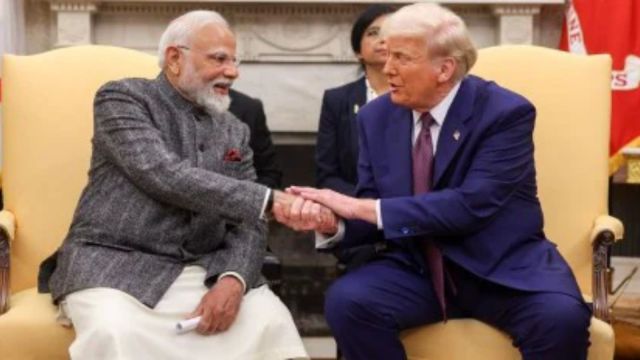
The relationship between the United States and India is often described as one of the most consequential of the 21st century. That is not only because of the size of our economies or the security challenges we face, but because our nations are bound by a belief that democratic societies can deliver prosperity, opportunity, and dignity for their people.
Recent headlines about tariffs and trade disputes risk obscuring that larger truth. These disagreements are real, but they should not define the partnership. The test is whether two democracies can manage differences with steadiness and predictability, without falling into cycles of escalation.
In Washington, I have cautioned against the use of tariffs as a blunt instrument. They may attract political attention in the short term, but they ultimately hurt small businesses and families in both countries. Indian exporters face the loss of markets. American consumers see higher costs on everyday goods. Neither outcome advances the deeper purpose of our partnership.
The better path is steadier negotiation. Our nations have weathered disputes before, whether in pharmaceuticals, steel, or digital services. Progress has come through dialogue and persistence, not escalation. India is in a position to anchor that approach now, not by yielding its national interests but by showing that real strength comes through engagement.
The strongest bridge between our nations has never been tariffs or treaties. It has been people: Students crossing borders to study, engineers designing technologies that drive growth, and families sustaining bonds of culture and community across continents.
Immigration is foreign policy. The US benefits enormously from the contributions of Indian professionals, entrepreneurs, and scientists. When visa backlogs separate families or delay opportunity, both countries lose. When connections are made easier, both countries gain. Negotiations between Washington and Delhi should be judged not only by export figures, but by how they expand human possibility.
The world is watching how the US and India handle this moment. We are not the first nations to clash over trade, but we are among the few with the scale and democratic character to show that disputes need not weaken trust.
India’s growing role in the Quad, its leadership in the G20, and its rising voice in global forums show that New Delhi has the stature to set an example. If this trade moment is treated as an opportunity to prove how democracies manage differences responsibly, it will strengthen the partnership with the US and extend India’s influence on the global stage.
The US–India partnership has always been about more than economics. It is about proving that the values we share — pluralism, opportunity, freedom of thought and expression — can lead to real outcomes for our citizens. That requires trust, patience, and a willingness to keep talking even when disagreements are sharp.
As a Member of the United States Congress and as someone deeply connected to both our societies, I will continue to advocate for a relationship that reflects our highest aspirations. India now has an opportunity to show the world how democracies can lead, not through tariffs or tit-for-tat disputes, but through steadiness, dialogue, and the conviction that our shared future is brighter when we walk together.
Congressman Ami Bera, MD, represents California’s Sixth Congressional District in the US House of Representatives and serves as the Ranking Member of the House Foreign Affairs Subcommittee on East Asia and the Pacific